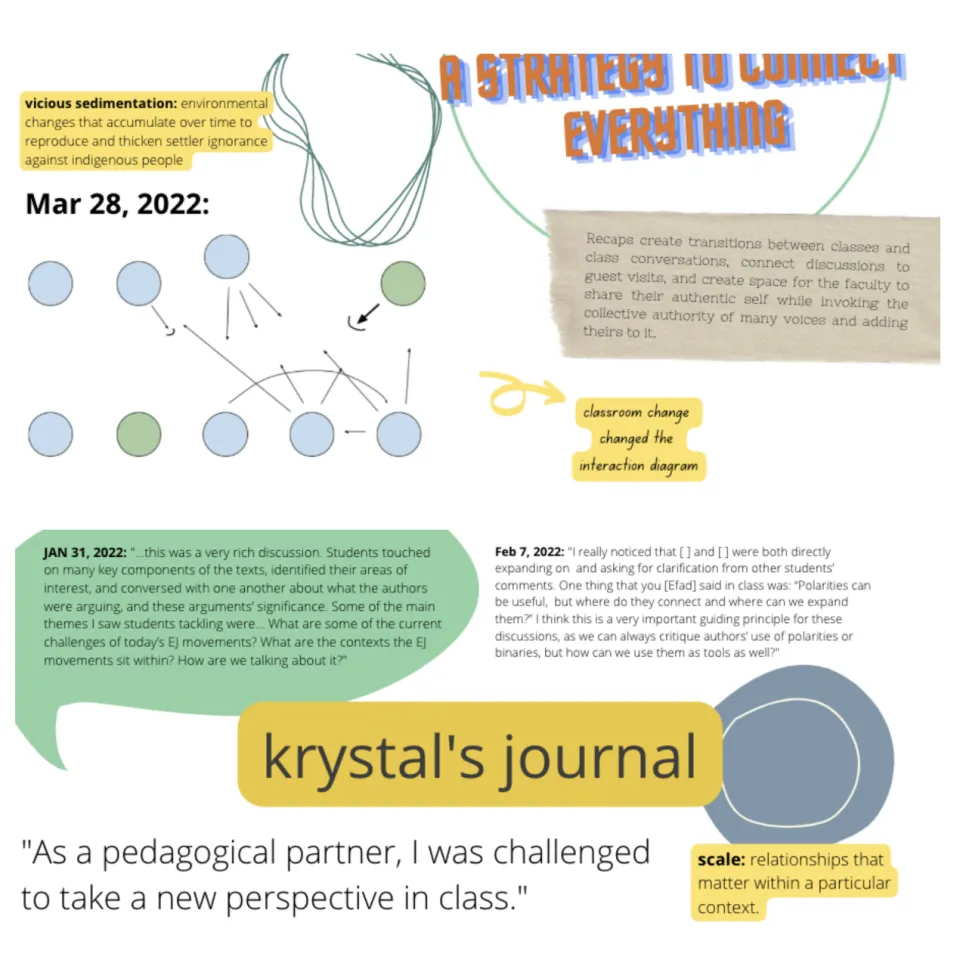Pedagogical Partnership
Smith College professors believe that there are many ways to teach well and that all teaching is improvable. As one pathway towards improvement, the Smith College Student-Faculty Pedagogical Partnership Program engages students as partners to work with faculty in the classroom over an entire semester. We imagine that there are various models that fall under this umbrella. Generally, the Sherrerd Center for Teaching and Learning offers this program in the spring, along with generous support from the Wurtele Center for Collaborative Leadership.
Our Pedagogical Partnership Program
Important Dates
Date(s) |
Details |
|---|---|
December 12, 2025 |
Deadline to apply for a Pedagogical Partnership |
January 21 and 22 |
Student Pedagogical Partner Orientation (student partners only, on Zoom) |
January 28 |
Program Kick-Off Lunch Meeting (faculty and student partners) |
February 16 |
Student Partner Gathering with the Wurtele Center (student partners only) |
March 10 |
Mid-semester Luncheon Session (faculty and student partners) |
April 6 |
Student Partner Gathering with the Wurtele Center (student partners only) |
April 28 |
Closing Luncheon Session (faculty and student partners) |
End of Spring Semester |
Complete final evaluation form (faculty and student partners) |
Spring 2025 Partnerships
Faculty Partner |
Student Partner |
Course |
|---|---|---|
Richa Nagar, Study of Women, Gender, and Sexuality |
Clio Barrett ’27 |
SWG 150 |
Ben Baumer, Statistical & Data Sciences |
Sarah Susnea ’25 |
SDS 410 |
Joel Kaminsky, Religion |
Lynn Kim ’25 |
REL 213 |
Lesley-Ann Giddings, Chemistry |
Aria Khalique ’25 |
CHM 224 |
Kementari Whitcher, Statistical & Data Sciences |
Sofija Stankovic ’27 |
SDS 201 |
Paulette Peckol, Biological Sciences |
Hannah Jaffe ’26J |
BIO 366 |
Maria Helena Rueda, Spanish & Portuguese |
Raphaela Bolivar AC |
SPN 245 |
Yalin Chen, East Asian Languages & Cultures |
Avery Sullivan ’27 |
CHI 110 |
Melissa Parrish, English Language & Literature |
Ange Carla Joseph ’26 |
ENG 219 |
Gary Felder, Physics |
Gabriella Schuckers ’27 |
PHY 215 |
Elizabeth Pryor, History |
Ruby Masters ’26 |
HST 270 |
Halie Rando, Computer Science |
Sian Bareket ’25 |
CSC 230 |
Rebecca Worsham, Classical Studies |
Alice Tan ’25 |
LAT 100Y |
A Prime Example
Mapping Course Discussions to Inform Pedagogical Pivots
Efadul Huq, Assistant Professor of Environmental Science and Policy and Krystal Bagnaschi ’22
